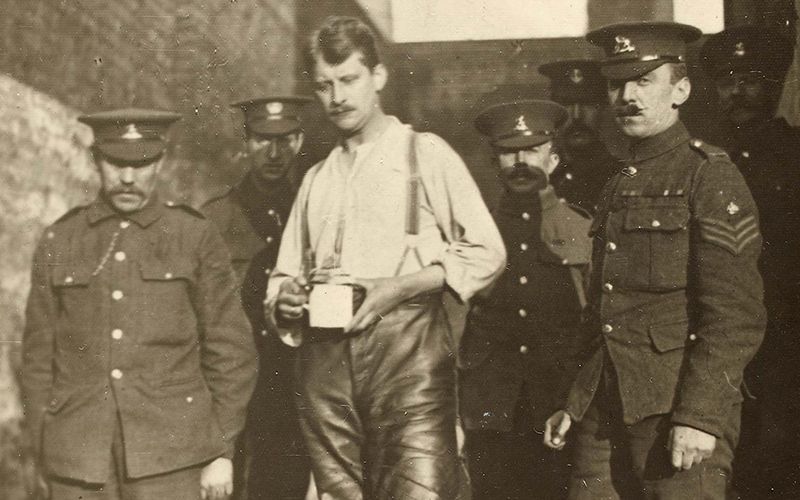Probably the funniest things about Mrs Brown, the foul mouthed Dublin matriarch played by comedian Brendan O’Carroll, 58, is that after years of false starts she’s finally making him rich.
Thanks to Mrs Brown the world is learning what the Irish themselves have always known: that working class Dublin mammies are the light of the earth.
The movie had led the Irish and British box office and is on its way to the US. Will it make it big here?
Time will tell.
But none of this could have been predicted. Remember that O’Carroll spent many decades of his life on comedy’s B list.
There was a failed movie starring the howlingly miscast Anjelica Houston. There were books that sold modestly. Then there were years of regional touring plays that didn’t exactly set the world on fire.
But O’Carroll has always had a devoted Irish audience, and now finally, with help from Mrs Brown, he now he’s on the cusp of conquering the planet.
What’s fascinating is just how little he’s sacrificed of the language and outlook of working class Dublin to his growing popularity.
In a show of cultural bravado that Sean O’Casey would have approved of, O’Carroll’s blowzy brunette tells the mountain to come to Mrs Brown, not the other way around.
Compared to the edgier work of alternative Irish comics like The Rubberbandits and D'Unbelievables, O’Carroll’s end of the pier antics looked like they hailed from a previous century.
That’s because they have. But fashion changes – and changes back – and quite astonishingly O’Carroll now finds himself the BAFTA-winning writer and star of the biggest comedy show on Irish and British television.
It’s such a late-in-life turnaround it really deserves to be a show itself, but O’Carroll doesn’t need the distraction of another surefire script right now. This week his "Mrs Brown D’Movie" opened to impressive business (making £4.3 million - $7.4m - in its opening weekend) and in 2015 he’s scheduled to take the entire cast on a UK national tour of huge arenas that he’s certain to sell out.
If comedy has a Beatles, it might look like him now. And if it did it wouldn’t really be an insult, because very little in his outlook or his comedy seemed to have moved beyond the era of Beatlemania.
Trafficking in stereotypes, except when it becomes funnier to explode them, "Mrs Brown" knows its core audiences’ pieties and prejudices and it plays to them mercilessly.
Part of the fun for "Mrs Brown’s" core audience is the delight of seeing their own outlooks reflected back at them for the first time in decades. "Mrs Brown" takes us back to the future as it panders and plays with these old fashioned outlooks. O’Carroll manages to lampoon without insulting them; in fact he sets them up so nimbly that its a thing to marvel at.
The show's most enduring delight is the wised-up, heart-on-her-sleeve wearing Mrs Brown herself. She’s beyond caring what you think of her, or her family, or her curtains or her bad language.
For a generation of Irish women of a certain age that means she’s something of a feminist icon. But she’s also and a none too subtle “feck you” to the “what will the neighbors think” attitudes so many Irish women were raised with.
Mrs Brown doesn’t care what the neighbors think. She doesn’t care what the priest thinks. She wants her three sons (including the gay one) to be happy and she wants a pint down the pub with her girls. For the generation she reflects (Irish women in their sixties, seventies and even eighties) she may be more liberating than the women’s movement.
Those who don’t get the "Mrs Brown" phenomenon can point to its many shortcomings. The canned laughter, the clunky plot contrivances and, in particular, the frequent use stereotypes (although they are always playful, never exactly hateful) make many critics recoil, but O’Carroll and his main audience could care less.
More people have watched his show than other seasonal hits like "Downton Abbey," "EastEnders" and many others. That’s because filth and sentiment don’t have a sell by and O’Carroll and "Mrs Brown" know it better than the competition. They’ll probably still be standing when the critics retire. It’s the secret of O’Carroll’s success after all – outlive your critics and you’ll have the last laugh.
Here’s the most viewed clip of "Mrs Brown":




Comments